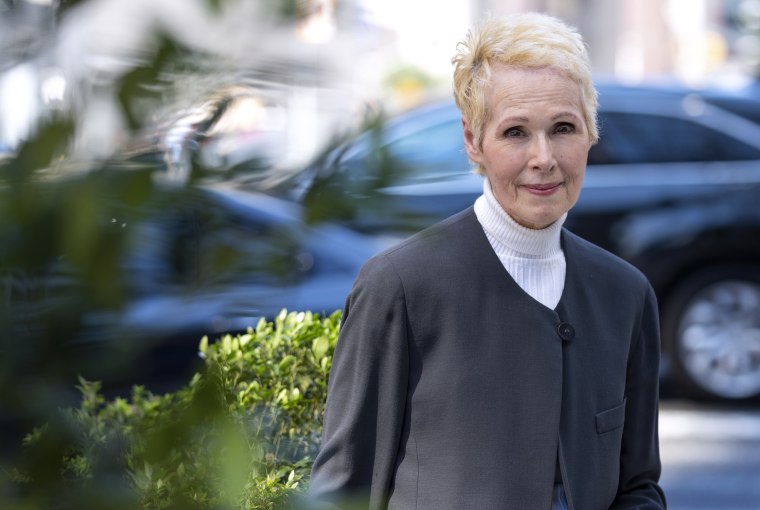The president of the United States was credibly accused of sexual assault (again) on Friday. In any other universe, this would be a massive and likely career-ending scandal. In this disgraceful White House, it wasn’t even enough of a story to crack the front pages of the major newspapers.
This is what Donald Trump has done: Lowered the bar for what counts as shocking or newsworthy so profoundly that a rape accusation becomes meaningless.
The president has previously been accused of sexual harassment and assault by more than a dozen women; he’s denied it every time. The same president was caught on tape saying that he likes to “grab ‘em by the pussy.” His own ex-wife Ivana — the mother of three of his children — said in a deposition that he raped her during their marriage; later, when that accusation became public, Trump’s then-lawyer Michael Cohen claimed it wasn’t rape because “you can’t rape your spouse.” Ivana said when the accusations were first made public that she didn’t mean rape “in a literal or criminal sense”; during the campaign, she called the story “without merit.”
In the immediate aftermath of E. Jean Carroll’s story, published on Friday by New York magazine, a question arose: Why didn’t she speak out sooner? After all, Trump has now been in office for two years and, had this been raised during the election, maybe it would have sunk him. Why did she wait? Carroll herself asked and answered the question in the story: A friend told her that Trump’s lawyers would bury her, she was scared she wouldn’t be believed, and she didn’t have the courage to speak out.
Want more articles like this? Sign up for the THINK newsletter to get the week's most important political and cultural analysis
And, after all, Trump was accused of sexually violating women well before the election. That he lies promiscuously was well known then; that he attacks detractors and perceived antagonists with incredible and childish vitriol was equally evident. Had she raised the story in 2016, would it have made a difference to voters who knowingly cast a ballot for a man who bragged about grabbing women by the genitals? It is hard to believe that there is a single Trump voter in America who, after hearing the Access Hollywood tape, would have read Carroll’s story and decided that was where he or she drew the line.
Carroll knew she had a lot to lose by telling her story, and there’s little evidence that it would have made a difference electorally. For whatever reason, she wasn’t ready to talk about it two years ago. Now she is.
A few days after doing so, her reasons for not speaking out have been proven prescient.
Carroll has been broadly attacked, smeared and now threatened by the president of the United States, who said in a statement: “If anyone has information that the Democratic Party is working with Ms. Carroll or New York Magazine, please notify us as soon as possible. The world should know what’s really going on. It is a disgrace and people should pay dearly for such false accusations.”
That response in and of itself should be disqualifying for someone who holds a elected office — it is a clear-cut case of a powerful man using his position of influence to intimidate anyone who would speak out against him. And yet the response to it has largely been a collective shrug.
In addition to denying the assault accusation, Trump claimed he had never met Carroll, even though a photo of the two of them meeting on another occasion was embedded in her story. And he didn’t even deny knowing her off the cuff: It was in a statement that, one imagines, someone should have fact-checked by reading the article to which it was responding. But we are at a point where we expect the president to lie, and simply accept when he tells us that we can’t trust our own lying eyes.
And so, for all of Carroll's bravery, it’s not making a lick of difference politically. Why do we think it would have mattered in 2016, when Trump voters and Republican Party loyalists have since made astoundingly clear that nothing matters to them other than power?
E. Jean Carroll’s piece, of course, wasn’t just about Trump: She lists a long string of men who she says have harassed, molested and assaulted her, and the power of the piece was in that buildup from the boy who violated her body first to the man-who-would-be-president violating it last. So many women’s entire lives are strings of attacks and indignities and violations, until it just feels normal. Why didn’t she speak out earlier about any of them? Because, like the proverbial frog in the pot, she became accustomed to being a woman in a misogynist world full of entitled and sometimes violent men. She didn’t like it, and she didn’t think it was OK, but she did believe that she had to navigate it on her own.
We are doing the same thing, right now, with this president: accepting — or at least watching our fellow citizens accept — what a few years ago we would have all said is unacceptable. Or, if we are not quite accepting the president’s behavior, we at least are observing how normal this lack of standards has become, and feeling helpless to do anything.
Why didn’t Carroll report the rape? Why didn’t she speak out sooner? Because of the utter normalization of abuse, entitlement and exploitation over her life and in this age. The same reason, in other words, that Donald Trump is still in the White House.


